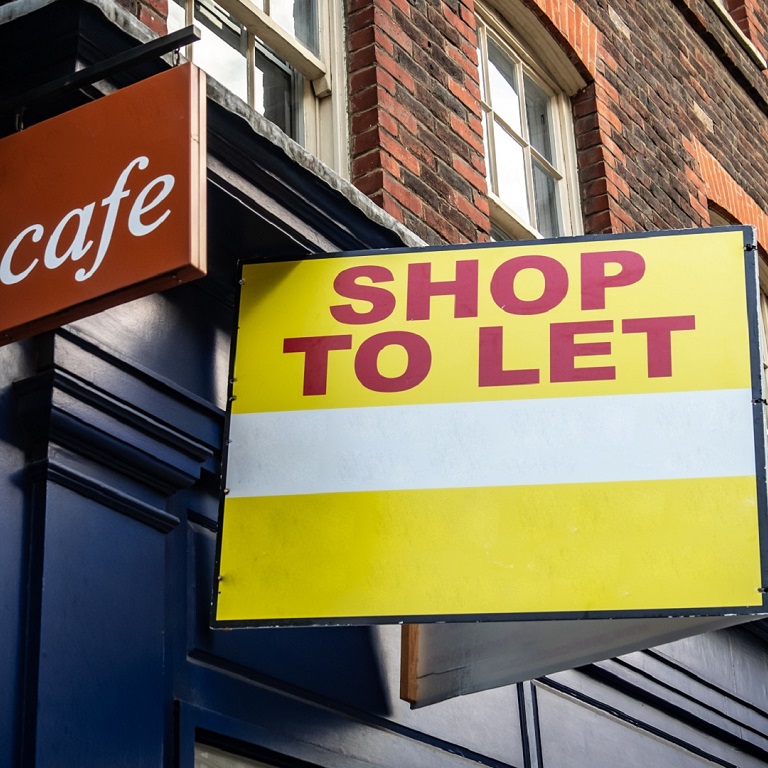You might think that an empty property poses less risk than one that’s occupied: less contents, no risk of damage by occupants. But sadly, this is not the case.
The risk to vacant property be malicious damage, squatters and structural damage are just some of the risks of leaving your property empty. Did you know that:
- 1 in 6 properties in England are at risk of flooding1
- The legal fees for removing squatters normally start at about £5,0002
- Metal theft now costs the UK economy half a billion pounds a year3
Vacant property security tips
Property owners can reduce the risks to vacant property by taking a few simple steps. These tips could help you protect your property from malicious or structural damage:
Where do you start?
To keep your property safe it's essential that a quick and basic risk assessment is undertaken:
- What am I looking to protect?
- How could intruders attempt to unauthorised access?
- Are there any other unoccupied buildings in the vicinity – have they had problems?
- What could anyone steal?
- What could someone use to start a fire?
- What could cause injury to someone entering the building?
- Where would contractors store their materials if the building was being renovated?
Check your locks and security systems
Check your property has working security alarms and secure windows and doors. This can be both a deterrent and alert local authorities in the event of a security breach. Your insurer may also require further security such as CCTV. You could also consider additional security measures, such as steel security doors or screens, protective fencing or concrete barriers.
Disconnect utilities
Escape of water (EOW) claims has been an issue for UK insurers for a number of years. These claims are consistently one of the most expensive, costing insurers an estimated £1.8m a day, 4 and in unoccupied properties you run the risk of discovering them a lot later which can result in greater damage costs. Reduce the risk of gas and water leaks by disconnecting supplies from the source.
Remove combustibles
Arson attacks are still the largest single cause of fires in England and Wales, costing around £2.1bn annually.5 By removing all combustible materials, you could help to minimise the risk of your vacant property being targeted for arson.
Cut back your hedges
Trim any overgrown hedges to make the building more visible to passers-by. This will make your building seem more exposed and less of a target for break-in or malicious damage.
Visit your property
You should conduct regular property inspections to give you peace of mind. Have someone visit, or go yourself once a week. This is so that you can deal with any structural issues and report any malicious damage as soon as possible. You could even consider vacant property services like static security guards to protect your property.
Empty property protection: risks to people
As a property owner, you also have a duty of care to anyone who enters your building, whether they have permission or not. Carrying out a risk assessment will help avoid the risks to the building itself and anyone who enters the property.
Your risk assessment should ensure compliance with:
- Building Safety Act 2022.
- The Regulatory Reform (Fire Safety) Order 2005.
- Health and safety legislation.
- Environmental legislation.
- Public liability legislation.
Vacant property protection and insurance
Insurance companies see vacant property as high risk. This means insurance for vacant properties can actually cost more, than for properties with a tenant. If you don’t tell your insurer when your property becomes vacant you could risk future claims being invalid.
Our property insurance experts can help you with any queries you have about your vacant property.
Sources:
1. thefloodhub.co.uk/am-i-at-risk/
2. thelowegroupltd.com/the-true-cost-of-squatting
3. instituteoflicensing.org/appg-for-metal-stone-and-heritage-crime-call-for-scrap-metal-act-review
5. clearway.co.uk/news/how-safe-are-your-vacant-properties-from-arson-attacks/
The information contained herein is based on sources we believe reliable and should be understood to be general insurance and risk management information only. The information is not intended to be taken as advice and cannot be relied upon as such. Statements concerning legal, tax or accounting matters should be understood to be general observations based solely on our experience as insurance brokers and risk consultants and should not be relied upon as legal, tax or accounting advice, which we are not authorised to provide.
This is a marketing communication.


